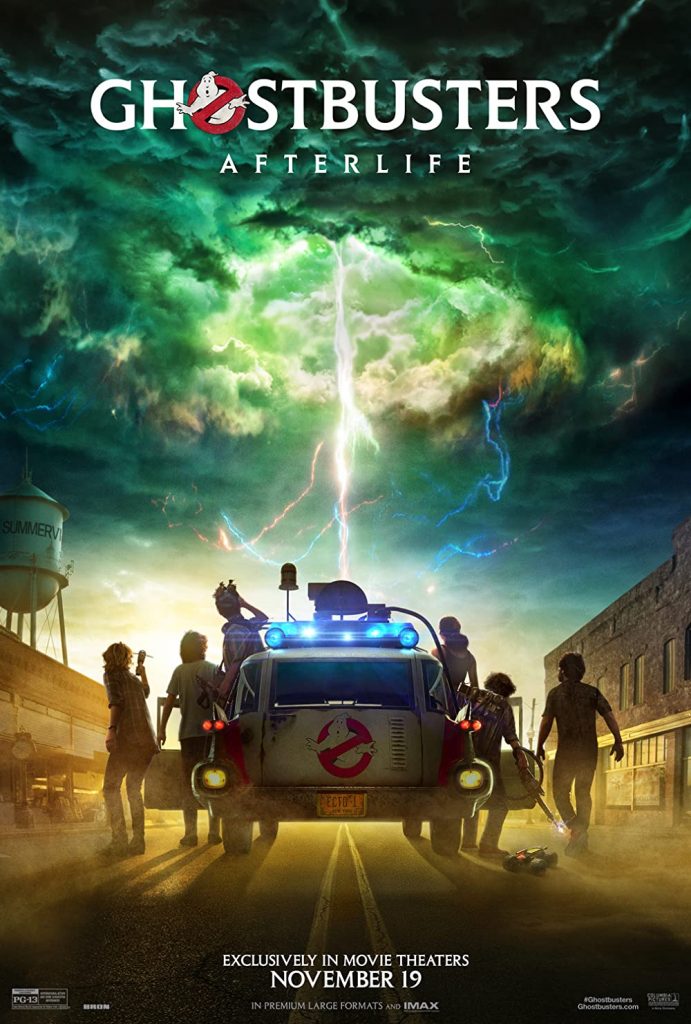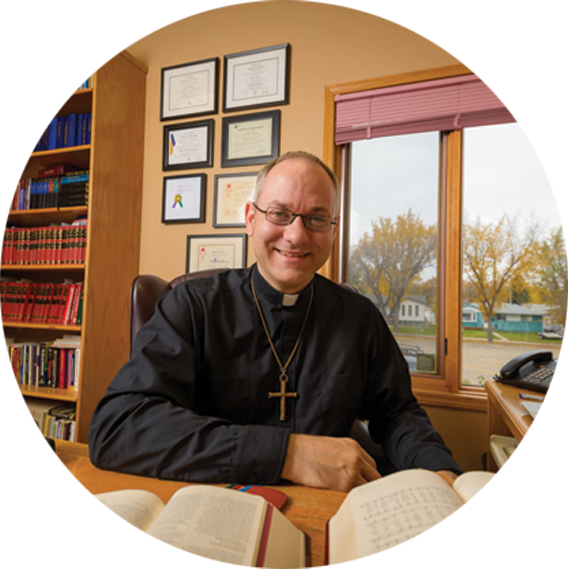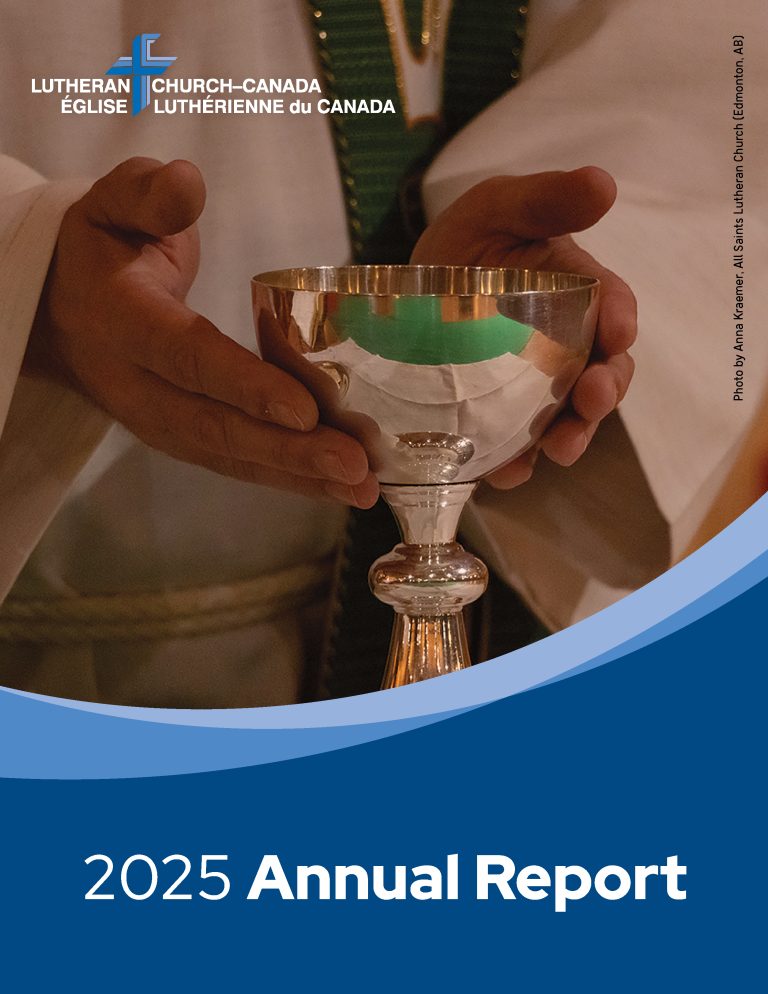Ghostbusters: Calling the Reit Number!
 by Rev. Ted Giese
by Rev. Ted Giese
A down-on-her-luck single mother, Callie, moves her young nerdy science-obsessed daughter Phoebe and mechanically-inclined teenaged son Trevor to her estranged father’s farmhouse to settle his affairs after his sudden death. The dilapidated farmhouse holds secrets to a mystery slowly uncovered by Phoebe and Trevor. The local abandoned mine and their deceased grandfather are both connected to a paranormal event from the 1980s involving the famous Ghostbusters.
Jason Reitman’s 2021 supernatural comedy Ghostbusters: Afterlife completely ignores Paul Feig’s 2016 Ghostbusters: Answer the Call—a lacklustre gender-swap reimagining of the franchise—opting to create something that faithfully continues the Ghostbusters story for a new generation while respecting the original fans. Frankly, this is a bit of a relief. In the last few years reboots, re-imaginings, remakes, sequels, prequels, and spin-offs have all too often vandalized the very products they are building upon. Feig’s 2016 movie is a good example: take the Ghostbusters film franchise from the 1980s, disassemble it, inject a modern feminist underpinning, swap out the central male characters for female versions of the same characters, then reassemble the modified whole general concept, sprinkling in Ghostbusters winks and nods to appease original fans while also attracting a new audience.
Historically, the Ghostbusters franchise has appealed more to male audiences, so expanding the audience would be attractive to the studio. Broadening the consumer base would generate more profit. But it’s important to choose the right people to lead the project. If they are more concerned about introducing new ideas or messages rather than celebrating the things about the original that made it a classic, then the original fan base may end up feeling devalued, concluding that the whole endeavour is just a money-grab or a ploy to spread ideas not original to the franchise.
Efforts to broaden an audience without maintaining previously established quality and continuity can ostracize faithful fans whose dollars are necessary to undergird future financial growth (see, for example, fan reaction to Disney’s Star Wars trilogy). That’s the gamble: spend all your time chasing birds in the bush while neglecting the one in your hand and you might just end up with both hands empty.
Comedy has a natural way of disarming audiences, allowing the underlying subject matter to slip past the Christian’s powers of discernment unless we pay close attention.
Feig’s 2006 Ghostbusters film nearly put the franchise in its grave. But with Jason Reitman—the son of Ivan Reitman the original director of the original Ghostbusters movie and its 1989 sequel—the franchise has received a new lease on life. 2016’s film came across like an acerbic and bitter SNL sketch that might have worked as a five-minute skit but certainly not as a feature-length film. But Ghostbusters: Afterlife is the opposite. Made with a lot of heart, this new film is a kind, gentle, respectful tribute to Ivan Reitman’s Ghostbusters films. Jason Reitman clearly loves and honours his father’s work. Christian viewers, aware of the relationship between these directors, may want to contemplate the way in which Ghostbusters: Afterlife serves as an example of a son fulfilling the positive aspect of the Fourth Commandment where children are to honour, serve, and obey their father and mother, and love and cherish them. A by-product of this love and respect is a fan base that, by extension, feels cherished and respected.
Jason Reitman is definitely a different kind of director than his father, and Ghostbusters: Afterlife is understandably a different kind of film. The original film’s pacing is much faster; within thirty minutes, all the core characters are introduced, and everything is set up in a way both entertaining and economical. Viewers expecting that kind of structure in the new film may be disappointed. Jason Reitman’s is best known for directing films that, while including comedy, are more dramatic character studies. It makes sense then that Ghostbusters: Afterlife takes a more leisurely approach, focusing on developing the new central character Phoebe and the location of Summerville, Oklahoma. While Bill Murray, Dan Aykroyd, Ernie Hudson, and Annie Potts reprise their classic roles as Peter Venkman, Ray Stantz, Winston Zeddemore, and Janine Melnitz in this film, Jason Reitman doesn’t rely on them to carry the movie—nor does he use them as props for cheap jokes and non-sequitur cameos, as was the case in Feig’s 2016 reboot.
Ghostbusters: Afterlife largely revolves around Phoebe, a young girl who is smart, capable with science and engineering, and socially awkward. The character is excellently played by Mckenna Grace. Portrayed poorly, this kind of character could have annoyed audiences, coming across as a smirky know-it-all. But Phoebe doesn’t come across as smug or condescending in this film, even when she is being smug and condescending. Instead—and this is the big reveal fans of the original will happily see coming a mile away—she’s the perfectly lovable granddaughter of Dr. Egon Spengler (Harold Ramis), equally embodying his quirky persona.
In the 1980s, the Spengler character wouldn’t have been described as autistic. Now, because of greater public awareness of the condition (thanks in part to the popularity of characters like Sheldon Cooper in The Big Bang Theory), it’s possible to read the Spengler character in this light, and granddaughter Phoebe might also fall somewhere on the autism spectrum. But Jason Reitman and Mckenna Grace don’t use this as a crutch or cheap ploy to garner sympathy from the audience, instead crafting Phoebe into an endearing character worthy of stepping into the shoes first developed by Ivan Reitman and Harold Ramis.
Ramis, who helped write the original screenplays, died in 2014, and with his death hopes for a Ghostbusters original cast reunion seemed to die with him. Thankfully, the thought dawned on Reitman that the death of a cast member, even one as valuable as Ramis, need not impede a comedy about ghosts. They simply needed to incorporate him into the story as a ghost. They do this in a thoughtful and touching way, especially during the climax of the film’s third act. That said, Christian viewers will want to think long and hard about the idea of ghosts and the way in which they are presented in this film.
For generations, Dan Aykroyd and his family have been committed Spiritists and adherents of Spiritualism. It was Aykroyd who came up with the initial concept for the Ghostbusters in the early 1980s. Spiritualism is a religious movement teaching that the dead, in the form of spirits and ghosts, have both the desire and ability to communicate with the living, and that the living can likewise communicate with the dead via mediums, clairvoyants and séances. Concepts like ectoplasm, popularized in the Ghostbusters films, originate with Spiritualism. There are many biblical prohibitions against attempts to communicate with spirits or the dead, especially in Leviticus: “Do not turn to mediums or necromancers; do not seek them out, and so make yourselves unclean by them: I am the LORD your God” (Leviticus 19:31). And, “if a person turns to mediums and necromancers, whoring after them, I will set My face against that person and will cut him off from among his people. Consecrate yourselves, therefore, and be holy, for I am the LORD your God. Keep My statutes and do them; I am the LORD who sanctifies you” (Leviticus 20:6–8).
As a general rule, you shouldn’t take religious ideas from film and hold them to be true. When a film articulates religious beliefs, even in a comedy like Ghostbusters: Afterlife, viewers need to test them against Scripture and what the Bible teaches—with an awareness that humour and emotion can distract from the task of discernment.
Given these warnings, it is important for Christians to think carefully about films like Ghostbusters: Afterlife and the rest of the franchise. Comedy has a natural way of disarming audiences, allowing the underlying subject matter to slip past the Christian’s powers of discernment unless we pay close attention. In addition, grief and loss often leave people, even Christians, vulnerable to the temptation of wanting to communicate with loved ones who have died. Things unsaid, unfinished business, and loneliness all contribute to a desire to keep in contact with the deceased. Reitman’s treatment of these ideas—by dedicating the film to the deceased Harold Ramis, and the way in which it treats his character of Egon Spengler—comes across with great warmth and respect. It’s possible that viewers could be encouraged to seek a similar sort of reconciliation and happy reunion with their deceased loved ones this side of the great hereafter.
But just because something is nice and produces warm feelings doesn’t make it true. Christians will want to remember what Solomon teaches in Ecclesiastes: “the living know that they will die, but the dead know nothing, and they have no more reward, for the memory of them is forgotten. Their love and their hate and their envy have already perished, and forever they have no more share in all that is done under the sun” (Ecclesiastes 9:5–6). For family members of Christians who have died with their faith in Jesus, the important thing to remember is that they are with Christ awaiting the Last Day and the second coming of Christ Jesus; they will not be mere “ghosts” but will instead be numbered among the resurrected (1 Corinthians 15:51-53, 1 Thessalonians 4:13-18).
There is another aspect of the film that Christians will want to note of: the idea of an imminent supernatural apocalypse. This theme is as much a part of Ghostbusters: Afterlife as it was of the original Ghostbusters. Again, we learn of the impending arrival of Gozer the Gozerian, a fictional ancient Middle Eastern deity bent on destroying the world and enslaving mankind. In the original film, the wisecracking Venkman, Stantz, Spengler, and Zeddemore heroically thwart Gozer and save New York City. In this new film, Phoebe, her friend Podcast, schoolteacher Mr. Grooberson, mom Callie, brother Trevor, and his crush Lucky all work together to save the day and thwart another attempt to enter the world by Gozer the Gozerian.
This film, like the original, makes reference to Revelation 6:12—“When he opened the sixth seal, I looked, and behold, there was a great earthquake, and the sun became black as sackcloth, the full moon became like blood,” with the text interpreted to describe Gozer’s supernatural apocalypse. In the Bible, of course, this passage has nothing to do with the arrival of a demonic entity that must be stopped to save humanity; it instead centres on Jesus’ Second Advent. Christians believe firmly that the return of Jesus on the Last Day will usher in the resurrection of the dead to life eternal. And no one will be able to stop Jesus’ return when He comes. Ghostbusters: Afterlife instead portrays the Last Day in a negative light.
As a general rule, you shouldn’t take religious ideas from film and hold them to be true. When a film articulates religious beliefs, even in a comedy like Ghostbusters: Afterlife, viewers need to test them against Scripture and what the Bible teaches—with an awareness that humour and emotion can distract from the task of discernment. Unlike crime dramas or historical fiction, sci-fi fantasy and supernatural genre films regularly present viewers with unique cosmologies (big picture world-building religious ideas) intended to explain why things are the way they are.
In the end, Jason Reitman succeeds in doing what Paul Feig failed to do in 2016: expand the potential audience of the Ghostbusters franchise without alienating fans of the original. It proves the old adage true: “It’s not what you say—it’s how you say it.” Pitching a new Ghostbusters film that focuses primarily on the granddaughter of one of the original Ghostbusters and the posthumous reconciliation of the adult daughter with her deceased estranged father creates opportunity for the film to appeal to a wider audience, including more female viewers. Reitman succeeds where Feig didn’t because Reitman does what his father did: he invites everyone along for the ride and doesn’t put down or mistreat any particular segment of the film’s potential audience.
 Is Afterlife as good as the original? No. But it is entertaining. The effects are well done, and the supporting cast are all great. It’s fun to see Bill Murray as Peter Venkman on screen again. The film likely didn’t need all the little Stay Puft Marshmallow Men gags, but overall the film fits into the expanding Ghostbusters story while honouring the original.
Is Afterlife as good as the original? No. But it is entertaining. The effects are well done, and the supporting cast are all great. It’s fun to see Bill Murray as Peter Venkman on screen again. The film likely didn’t need all the little Stay Puft Marshmallow Men gags, but overall the film fits into the expanding Ghostbusters story while honouring the original.
Christian viewers need to remember though that what is being said is just as important as how it’s being said—in fact, more so. Families should be careful about the religious ideas offered in this film, because the reverent and charming way Reitman presents them may contribute to them slipping inadvertently under the viewer’s catechetical defences.
———————
Rev. Ted Giese is lead pastor of Mount Olive Lutheran Church, Regina, Saskatchewan, Canada; a contributor to The Canadian Lutheran, Reporter; and movie reviewer for the “Issues, Etc.” radio program. For more of his television and movie reviews, check out the Lutheran Movie Review Index.



